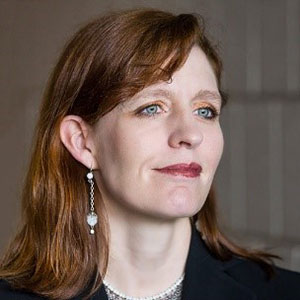Published: May 21, 2020

It seems surreal to think that at the start of this year, few of us were aware of the threat of a novel new virus gaining momentum overseas. Now, only a few months later, the coronavirus or COVID-19, is a global pandemic, the effects of which have impacted nearly every aspect of our day-to-day lives.
As the number of cases in the U.S. continued to grow, states enacted restrictions to enforce social distancing efforts, with stay at home orders, business closures, and for businesses deemed essential, establishing guidelines to ensure customer and employee safety. At the heart of this was the desire to limit person-to-person contact in order to slow the rapidly climbing rate of infections. And so the terminology, “flatten the curve,” became part of our everyday conversation.
For this episode I am joined by Julie Swann, department head and A. Doug Allison Distinguished Professor of the Fitts Department of Industrial and Systems Engineering with North Carolina State University, to discuss what the impact could be on the national and even world-wide effort to flatten the curve as states being to lift their restrictions.
Interviewed this episode:

Julie Swann
North Carolina State University
Julie Swann is the department head and A. Doug Allison Distinguished Professor of the Fitts Department of Industrial and Systems Engineering. She is an affiliate faculty in the Joint Department of Biomedical Engineering at both NC State and the University of North Carolina at Chapel Hill. Before joining NC State, Swann was the Harold R. and Mary Anne Nash Professor in the Stewart School of Industrial and Systems Engineering at the Georgia Institute of Technology. There she co-founded and co-directed the Center for Health and Humanitarian Systems (CHHS), one of the first interdisciplinary research centers on the Georgia Tech campus. Starting with her work with CHHS, Swann has conducted research, outreach and education to improve how health and humanitarian systems operate worldwide.
Episode Transcript
Contact us to request transcript.
Want to learn more? Check out the additional resources and links listed below for more information about what was discussed in the episode.
“The 2019-nCoV coronavirus: Are there two routes to infection?,” OR/MS Today
“COVID-19 math: You, me Ro, and rolling re-entry,” OR/MS Today
“Modelling seasonality and viral mutation to predict the course of an influenza pandemic,” NIH National Library of Medicine
“COVID-19 is still spreading – is your city ready?,” The Hill
“Statistics and research: Coronavirus Pandemic (COVID-19),” Ourworldindata.org
“Coronavirus in the U.S.: Latest map and case count,” The New York Times
“Projecting the transmission dynamics of SARS-CoV-2 through the postpandemic period,” Science
“The Risks – Know Them – Avoid Them,” erinbromage.com
“We’re in the calm before a new storm of COVID-19 infections and deaths,” Scientific American
“Managing Business Disruption and Supply Chain Risk,” YouTube.com (GIBS Business School) and corresponding slides
